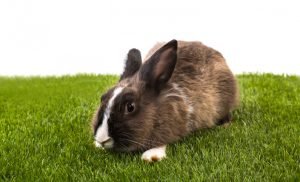As rabbit owners, we all want the best for our furry little friends. However, sometimes it can be challenging to determine if our rabbits are healthy or if they are exhibiting signs of illness. Recognizing the warning signs and taking preventive measures are essential steps in ensuring a long and happy life for our beloved bunnies. In this blog post, we will delve into the world of rabbit health and provide you with the knowledge and tools needed to keep your pet rabbit in tip-top shape, including how to know when your rabbit is sick.
From monitoring appetite changes to identifying physical symptoms, we will guide you through the various aspects of rabbit health. Understanding the warning signs, common health problems, and preventative measures, such as learning how to know when your rabbit is sick, is crucial in maintaining your rabbit’s well-being. So, let’s embark on this journey together and become experts in the art of rabbit care.
Short Summary
Recognize warning signs of a sick rabbit, such as changes in appetite, abnormal poop, and behavioral shifts.
Monitor physical symptoms like drooling/facial swelling, respiratory issues, and skin problems/fur loss.
Take preventive measures to ensure your rabbit’s health with a proper diet, a clean living environment & regular veterinary checkups.
Recognizing the Warning Signs of a Sick Rabbit
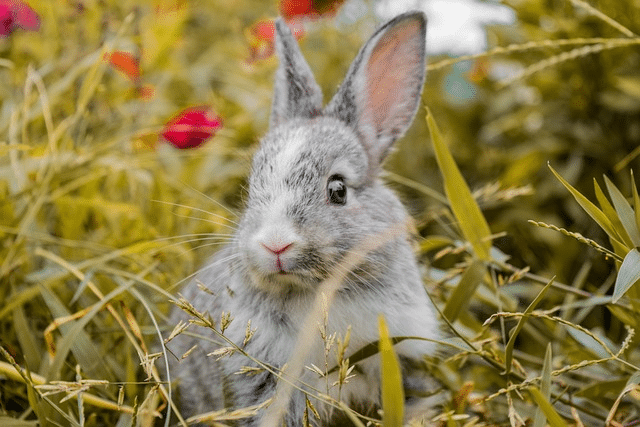
One of the key components of keeping your rabbit healthy is being able to recognize the warning signs of a sick rabbit. This includes monitoring appetite changes, abnormal poop, and behavioral shifts. It is vital to identify these signs promptly to ensure timely intervention and improved prospects for successful treatment.
As prey animals, rabbits are experts at hiding their weaknesses, making it even more essential for owners to be vigilant for any changes in their behavior or physical appearance. Remember, early detection can be the difference between a minor issue and a serious health problem.
Let’s examine each of these warning signs in more detail.
Appetite Changes
A sudden change in your rabbit’s appetite is a red flag that something might be amiss. Rabbits may experience a decrease in the amount of hay and fresh vegetables they consume, as well as an increase in the amount of time they spend sleeping. If you observe that your rabbit is declining to eat or has diminished in weight, it is feasible they are enduring anorexia (a decrease in appetite) or pseudo anorexia (the incapability to masticate or ingest food).
It is possible that overgrown teeth, GI stasis, or even pain could be responsible for a change in the eating habits of rabbits. Other factors that may lead to anorexia and pseudo anorexia include kidney failure, stomach ulcers, tumors, poisoning, or diseases like infectious, respiratory, or neurological ones. It’s important to identify and respond to these issues quickly.
If you observe any of these symptoms, it is imperative that you contact your veterinarian without delay.
Abnormal Poop
Another important aspect to monitor is your rabbit’s poop. Normal rabbit feces are small, round pellets that are generally consistent in size and shape. Abnormal defecation signs to watch for include small or oddly-shaped fecal pellets, uneaten or excessively-produced cecotropes, soft stools/diarrhea, or a lack of fecal output. Rabbits consume cecotropes in order to obtain essential nutrients directly from their digestive system.
If you notice a rabbit urinating outside of the litter box, it could be an indication of a problem. It is possible that the litter box has not been cleaned recently, or that the rabbit might be experiencing arthritis or another mobility issue, which makes it difficult for them to climb over the edge of the box.
Keeping a close eye on your rabbit’s poop can provide valuable insights into their overall health.
Behavioral Shifts
Rabbits are expressive animals, and changes in their behavior can indicate that something is wrong. Personality shifts, such as becoming more aggressive than normal, maybe a sign that your rabbit is not feeling well. If your rabbit is exhibiting a hunched posture or appears to be uncomfortable, this may be an indication that they are experiencing pain. Aggression in juvenile rabbits can be attributed to puberty, so it’s essential to consider your rabbit’s age when assessing their behavior.
Keep an eye out for excessive scratching of the ears, which may be an initial indication of ear mites. Another concerning sign is mouth breathing, which signifies some sort of distress or illness. Be attentive to your rabbit’s energy levels, as any sudden and drastic reduction in energy levels should be monitored. Teeth grinding in rabbits is typically an indication of pain and is distinct from the soft tooth-purring sound that is typically emitted when a rabbit is relaxed and content.
Being aware of these behavioral shifts can help you address potential issues before they become serious health problems.
Physical Symptoms to Look Out For

In addition to monitoring your rabbit’s appetite, poop, and behavior, it is crucial to be aware of any physical symptoms that may indicate a health problem. These symptoms include drooling and facial swelling, respiratory issues, skin problems, and fur loss. Each of these symptoms can provide valuable information about your rabbit’s health and should be taken seriously.
Let’s explore each of these physical symptoms in more detail to better understand their implications and how to address them if they arise in your rabbit.
Drooling and Facial Swelling
Drooling and facial swelling in a sick rabbit may suggest a critical illness that necessitates immediate expert care. Wet skin and fur have the potential to cause skin rashes and matted fur. This can lead to infections if left untreated. If you notice excessive drooling, redness around the mouth, and swelling of the face, it is crucial to consult your veterinarian to determine the cause and initiate appropriate treatment.
Taking action at the first signs of drooling and facial swelling can prevent the issue from worsening and ensure your rabbit’s health is properly addressed.
Respiratory Issues
Respiratory issues are another common health problem in rabbits. Indicators of respiratory issues in rabbits may include coughing, sneezing, wheezing, breathing difficulty, runny nose and eyes, and lethargy. Respiratory issues in rabbits can be caused by bacterial or viral infections and can be exacerbated by stress and inadequate living conditions.
Preventive measures to reduce the risk of respiratory issues in rabbits include ensuring a proper diet, maintaining a clean living environment, and scheduling regular veterinary checkups. If you notice any signs of respiratory problems, it is essential to consult your veterinarian for guidance and treatment.
Skin Problems and Fur Loss
Skin problems and fur loss in rabbits can be distressing and uncomfortable for your pet. Indications of skin problems in rabbits can include fur loss, itching, redness, scabs, chronic dandruff, “walking dandruff,” persistent scratching of the hindquarters, nape of the neck, and along the back, sores or scabs in the same areas, and hair loss.
Skin problems in rabbits can be attributed to fungal, viral, bacterial, and parasitic infections. Treatment may include topical antimicrobial shampoos, sprays or creams, or antibiotics for more severe or generalized conditions.
Promptly addressing skin issues can prevent further complications and ensure your rabbit’s comfort and well-being.
Common Rabbit Health Problems
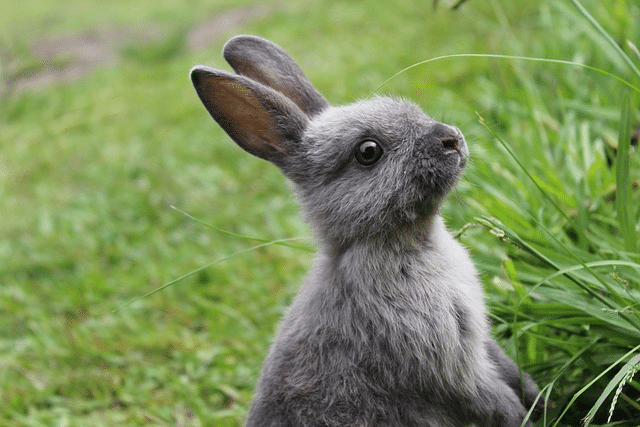
Now that we have discussed the warning signs and physical symptoms to look out for, let’s explore some common rabbit health problems. Gastrointestinal stasis, ear infections, head tilt, overgrown teeth, and claws are some of the more frequent ailments observed in rabbits. Understanding these common health issues and knowing how to address them will ensure that you are well-equipped to care for your rabbit’s needs.
Let’s take a closer look at each of these common health problems and how to prevent and treat them.
Gastrointestinal Stasis
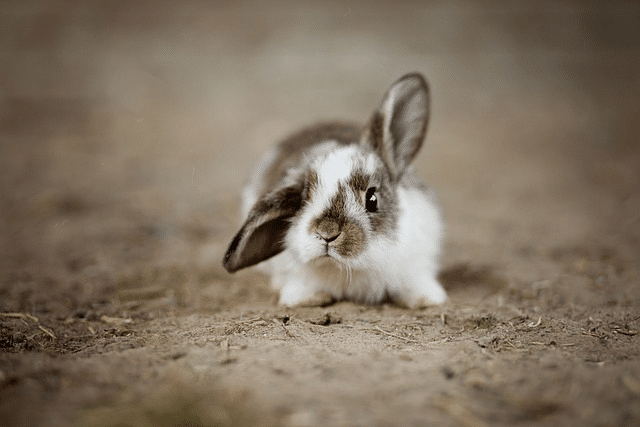
Gastrointestinal stasis is a life-threatening medical condition that can arise rapidly if a rabbit has been exposed to intense or sudden stressors, is consuming a low-quality diet, or is not taking in the required amount of fiber to keep their digestive system functioning properly. Signs of gastrointestinal stasis in rabbits may include a distended or firm abdomen, tenderness when palpated, diarrhea, and a decrease in fecal output.
Regular brushing and providing a proper high-fiber diet with unlimited, good-quality hay can be implemented to prevent hairballs in rabbits.
If a rabbit is displaying symptoms of gastrointestinal stasis, such as a bloated or hardened stomach, discomfort upon touching the stomach, diarrhea, or an unusually small number of fecal pellets, prompt medical assistance is strongly advised.
Ear Infections and Head Tilt
Ear infections and head tilt are common issues in rabbits. Ear infections are caused by bacteria, fungi, or parasites that enter the ear canal and cause inflammation. Indications of ear infections in rabbits may include head tilt, rolling, seizures, paralysis, loss of appetite, nausea, and behavioral changes.
Head tilt also referred to as torticollis or wry neck, can be caused by a variety of factors, including stroke, protozoan infection, ear infection, cancer, intoxication, and trauma. The recommended treatment for ear infections and head tilt in rabbits typically involves antibiotics, anti-inflammatory medications, and supportive care. Surgery may be necessary in some cases.
Early detection and treatment of ear infections and head tilt can prevent further complications and ensure your rabbit’s health and well-being.
Overgrown Teeth and Claws
Overgrown teeth and claws are another common health issue in rabbits. Regular inspections of your rabbit’s teeth and claws are essential to identify any overgrowth and maintain their overall health. A diet rich in fiber, such as good-quality hay, combined with the provision of wooden chew toys, should be sufficient for keeping the rabbit’s teeth at a practical length.
Trimming a rabbit’s nails approximately every six weeks can help prevent injuries and discomfort. It is advisable for a professional (a veterinarian) or the owner with proper guillotine-style clippers to trim a rabbit’s nails.
Regular maintenance of your rabbit’s teeth and claws is crucial for their well-being and comfort.
Preventative Measures for Rabbit Health
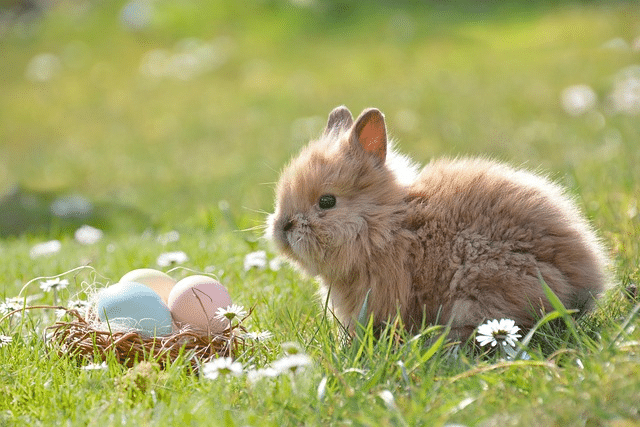
Taking preventative measures is essential for maintaining the health and happiness of your rabbit. By providing a proper diet, a clean living environment, and regular veterinary checkups, you can ensure that your rabbit stays healthy and thrives.
Let’s explore each of these preventive measures in more detail so that you can take the necessary steps to keep your rabbit in top condition.
Proper Diet
Feeding your rabbit a proper diet is crucial for maintaining their health and preventing common health issues such as dental disease. A rabbit’s diet should ideally include hay, fresh vegetables, and a limited amount of pellets. Fresh, clean drinking water is also essential for their digestive system.
Treats such as fruits and vegetables should be given in moderation, and you should avoid sugary treats, processed foods, and foods high in fat and sugar. By providing your rabbit with a balanced and appropriate diet, you can help prevent health issues and ensure they receive all the necessary nutrients and vitamins for a long and happy life.
Clean Living Environment
Keeping your rabbit’s living environment clean and sanitary is essential for preventing illnesses and ensuring their comfort. Regular cleaning and the use of a pet-safe disinfectant or a vinegar spray can help maintain a hygienic living space for your rabbit.
It is also imperative to clean the area on a weekly basis and ensure it is kept dry and well-ventilated. By maintaining a clean living environment for your rabbit, you can greatly reduce the risk of health issues and provide them with a comfortable and safe space to thrive.
Regular Veterinary Checkups
Frequent veterinary checkups are essential for establishing a benchmark of your rabbit’s health, recognizing any irregularities, and enabling the veterinarian to monitor your rabbit’s health over time. During a standard veterinary examination, the veterinarian will assess your rabbit’s eyes, ears, teeth, and fur, as well as evaluate their weight, temperature, and heart rate.
It is advisable to bring your rabbit to the veterinarian annually for a wellness exam. Regular veterinary checkups can help detect any health issues early and ensure that your rabbit stays in the best possible health.
When to Seek Veterinary Help

Knowing when to seek veterinary help for your rabbit is crucial for their well-being. There are emergency situations, such as difficulty breathing, sudden weight loss, or lack of appetite, that require immediate attention. On the other hand, non-emergency concerns such as overgrown teeth or claws should be addressed as soon as possible.
Don’t hesitate to consult your veterinarian if you notice any signs of illness or concerning symptoms in your rabbit. Timely intervention can make all the difference in addressing health issues and ensuring your rabbit’s well-being.
Emergency Situations
In emergency situations, such as difficulty breathing, sudden weight loss, or an absence of appetite, it is essential to seek veterinary help without delay. A visibly enlarged stomach should also be treated as an emergency situation.
If you hear loud tooth grating in your rabbit, consult your veterinarian to determine if there are any underlying health issues that require attention. Taking action in these emergency situations can be critical for your rabbit’s health and well-being.
Non-Emergency Concerns
Non-emergency concerns, such as alterations in appetite, fatigue, teeth grinding, respiratory issues, digestive issues, and vocalizations, should also be addressed by your veterinarian. If you suspect your rabbit has fleas, it is advisable to contact your veterinarian for guidance.
Although these concerns might not be as urgent as emergency situations, addressing them in a timely manner can help prevent further complications and maintain your rabbit’s overall health.
Summary
In conclusion, understanding the warning signs of a sick rabbit, recognizing common health problems, and taking preventive measures are essential steps in ensuring a long and happy life for your beloved bunny. By being attentive to your rabbit’s appetite, poop, behavior, and physical symptoms, you can detect health issues early and address them before they become serious problems. Remember, it is always better to err on the side of caution and consult your veterinarian if you have any concerns about your rabbit’s health. And most importantly, enjoy the wonderful and rewarding journey of sharing your life with a happy and healthy rabbit.
Frequently Asked Questions
How do I know if my rabbit is ill?
If you notice your rabbit exhibiting any of the above behaviors, it’s important to seek veterinary advice as soon as possible. Paying close attention to changes in diet, energy levels, behavior, and overall health can help you determine if your rabbit is ill.
How do you help a sick rabbit?
To help your sick rabbit, make sure to provide them with warmth and hydration. Offer them a mixture of water or soft foods like applesauce or baby food via syringe if they are unable to eat or drink.
Additionally, your vet may prescribe medication that can help alleviate symptoms and treat the condition.
How do I know if my rabbit feels safe?
By observing your rabbit’s behavior, you can easily tell if they feel safe or not. Look for signs such as ears being forward and relaxed, lying down with a relaxed body or stretched body, and interacting with its environment.
If these behaviors are present, then your rabbit likely feels secure in its environment.
What is a common rabbit sickness?
Rabbits are susceptible to many ailments, with the most common ones being upper respiratory tract infections (snuffles), parasites, dental disease, gastrointestinal stasis, uterine issues, and pododermatitis.
Taking preventive measures to protect your pet rabbit from these illnesses is essential for its health and well-being.

